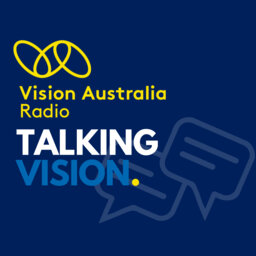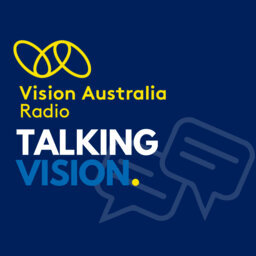Talking Vision 752 Week Beginning 28th of October 2024
Sam is joined by Corene Strauss and Brooke Carter from the Australian Disability Network, who are here to tell us all about the PACE mentoring program for job seekers with disabilities, as well as their upcoming It's Not Hard to be Inclusive campaign running in the lead up to International Day of People with Disability on 3 December.
Then later in the show Sarah from the library is back to tell us all about the latest updates to the Vision Australia library, and we finish up with some news and information.
In 1 playlist(s)
Talking Vision by Vision Australia Radio
Vision Australia Radiothon is on now. Donate via www.varadio.org and make a tax deductible donation …Social links
Follow podcast
Recent clips

Talking Vision 820 Week Beginning 23rd of February 2026
27:55

Talking Vision 819 Week Beginning 16th of February 2026
28:59

Talking Vision 818 Week Beginning 9th of February 2026
28:10
 Talking Vision by Vision Australia Radio
Talking Vision by Vision Australia Radio